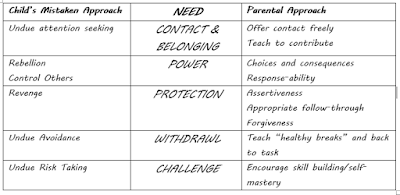This week we talked about how families can be reconstituted via divorce, remarriage and simply growing older. We talked about how there are different types of divorce: emotional, legal, economical, co-parental, community, and psychic. It surprised me that there can be a divorce in a relationship while the couple is still married. It seems like all of the types combined can especially lead to a legal divorce (which is what we usually think of when we hear of divorce).
What is especially interesting is the principle of "finding the opportunities in the challenges." Even through these hard times of changing the family system, we can change how we view unpleasant things. There's something about the process that changes things. When my parents were going through their divorce (when I was 12) and through the subsequent years, I faced a lot of challenges. I know it's cliche, but it was REALLY HARD. I was really fortunate that I had a solid base to lean on or I don't think I would have been able to find the opportunities.
Saturday, December 12, 2015
Monday, December 7, 2015
Lesson 11: Parenting
I love word definitions and finding distinctions between word pairs once thought to be the same. "Fitting in" vs "Belonging." "Faith" vs "Belief." "Discipline" vs "Punishment." In regards to parenting our children, this last distinction can make a big difference in our relationship. The difference between the two are as follows:
Discipline is a choice.
Punishment is from a superior to an inferior.
Discipline deals with natural consequences.
Punishment is a penalty inflicted that is severe, rough, or disastrous in treatment, and not known in advance.
Discipline is age and situation appropriate.
Punishment is when consequences don't match behaviour. When the only follow through done is done in anger. When a reward is given as payment for loss or suffering. A compensation.
How do you regard your children?
When Disciplining our children, it's better to address their misbehaviour as a miscommunication of their needs. The following chart provides some examples.
Richard Popkin's "Problem-Handling Model" (because not all problems can be solved) gives us a new paradigm of teaching our children. The first question to ask is "Who owns the problem?" Who wants the change and who is affected by it?" After that, you just follow the diagram.
Discipline is a choice.
Punishment is from a superior to an inferior.
Discipline deals with natural consequences.
Punishment is a penalty inflicted that is severe, rough, or disastrous in treatment, and not known in advance.
Discipline is age and situation appropriate.
Punishment is when consequences don't match behaviour. When the only follow through done is done in anger. When a reward is given as payment for loss or suffering. A compensation.
How do you regard your children?
When Disciplining our children, it's better to address their misbehaviour as a miscommunication of their needs. The following chart provides some examples.
Richard Popkin's "Problem-Handling Model" (because not all problems can be solved) gives us a new paradigm of teaching our children. The first question to ask is "Who owns the problem?" Who wants the change and who is affected by it?" After that, you just follow the diagram.
The most important thing to follow, however, is the Holy Spirit. He will direct you, when asked with real intent, how to parent the children God has entrusted you with. He will lead you to guide with love and confidence, not lies and manipulation.
Wednesday, December 2, 2015
Lesson 10: Fathers and Finances
What are you trading for your money?
This was an interesting question brought up at the end of class this week. It made me more aware of what my priorities are and also reevaluate what I hold important. For example, this week we also talked about dual-income families and how they actually end up making less money than if just one person worked. When our priority is gaining money, we can lose out on relationships, time, and emotional and physical energy, all while not actually getting paid that much.
We also discussed why budgeting is important, not only because we're being responsible with what we've been given, but also it gives a couple the opportunity to cooperate in decision making. They decide how to use said money, but also their time, talents and resources. It also brings up what each partner values and where they are willing to compromise.
Subscribe to:
Comments (Atom)



